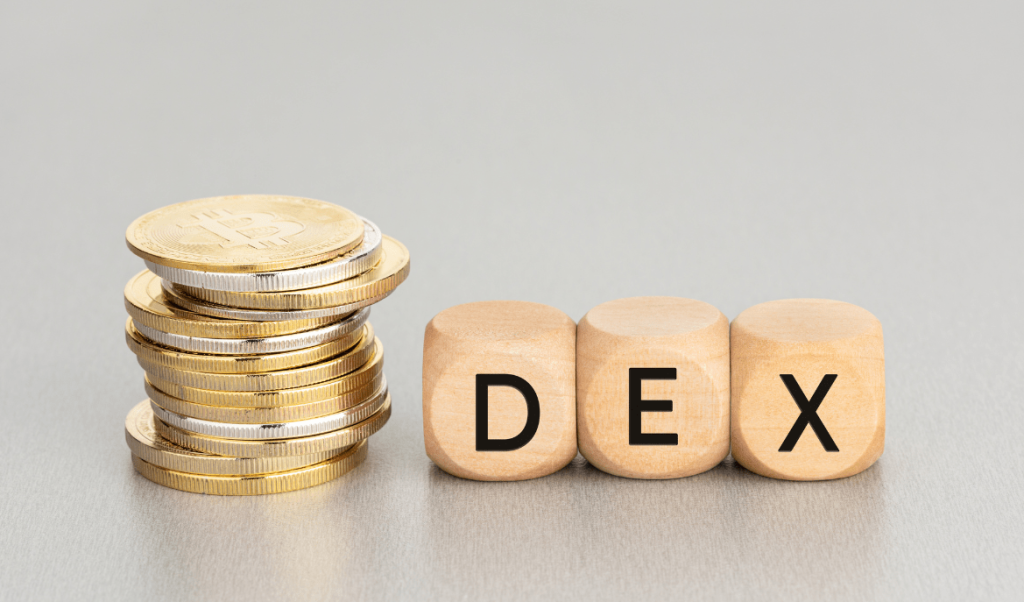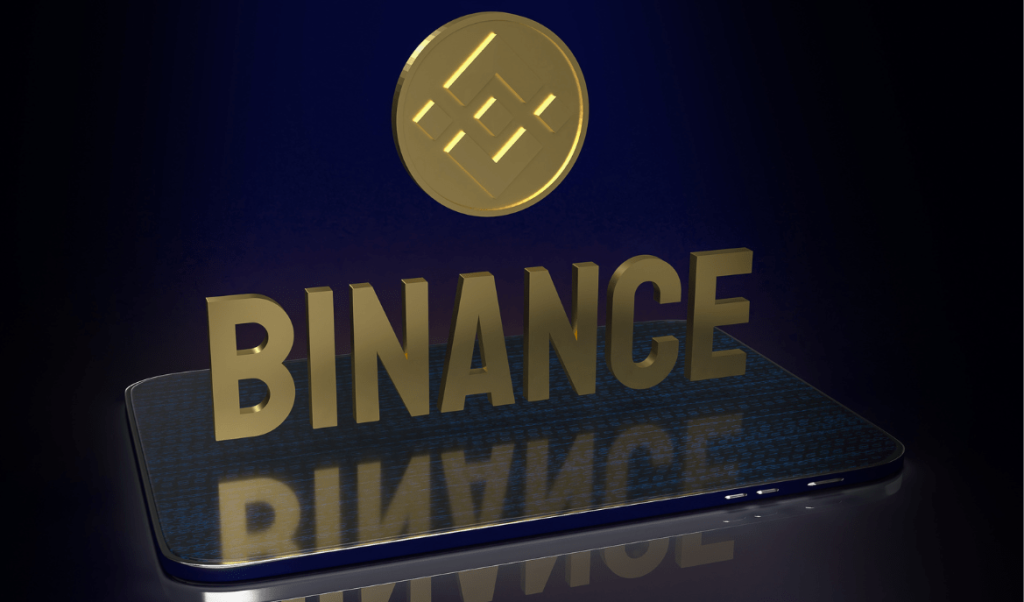5 Best Cryptocurrency Trading Platforms: Pros and Cons

When investing in cryptocurrencies, the first and most crucial thing is choosing the best cryptocurrency trading platform. Then, the next question arises, which crypto platform has the most revenue and users and the most reliable?
Well, each trading platform has unique features and fee structures, making the decision highly personal. Nowadays, cryptocurrency platforms are not just about buying and selling. These platforms offer advanced features like margin trading, staking, and automated trading bots.
Whether you are exploring a Bitcoin trading platform for the first time or looking for a full-fledged crypto investment platform, understanding its pros and cons is essential to maximising your returns.
In the guide, we will discuss centralized and decentralized platforms, the top 5 crypto trading platforms, and their pros and cons. After reading it, you can pick the best crypto investment platform.
Understanding Cryptocurrency Exchanges

Crypto exchanges are online platforms where users buy, sell, and trade digital currencies. They are gateways to the crypto markets for new investors and connect sellers with potential buyers.
Some trading platforms only focus on Bitcoin, while many exchange platforms support hundreds of cryptocurrencies and NFTs. A crypto trading platform acts like a big market for cryptocurrency transactions. Many crypto and Bitcoin trading platforms allow you to convert crypto into traditional currencies.
Types of Exchange Platforms
Exchanges come in two types: centralized and decentralized platforms. Centralized exchanges (CEXs) are run by companies and offer high liquidity, while decentralized exchanges (DEXs) operate on blockchain technology.
Centralized Exchanges (CEXs)
CEXs are the most common type of crypto trading platform. These exchanges are controlled by a central authority or company that acts as an intermediary between buyers and sellers and earns through commission and transaction fees.
The CEXs often offer a user-friendly interface that is easy to understand even for a beginner. Popular centralized platforms include Binance, Coinbase, and Kraken. They are very similar to stock exchange websites or apps. Investors can buy and sell digital assets according to the prevailing market price.
Investors can set a price, and when the currency touches that point, it will be sold automatically. These set points are often known as spots.
Security is a key focus for centralized exchanges. They store user funds in a combination of hot and cold wallets. However, their centralized nature makes them prone to hacking. To avoid risks, many platforms implement insurance funds and two-factor authentication.
10 Best Centralized Crypto Exchanges
- Binance
- Coinbase Exchange
- Kraken
- KuCoin
- Binance.US
- Bitfinex
- Gemini
- Coincheck
- Bitstamp
- Bybit
Decentralized Exchanges (DEXs)

Decentralized crypto exchanges (DEXs) have transformed the trading landscape. These platforms allow users to buy and sell their coins without relying on a central authority. They work on blockchain technology and use smart contracts to automate transactions.
DEXs allow peer-to-peer buying and selling directly from your wallet. They do not involve a centralized system or an intermediary. Most DEXs use Automated Market Makers or AMMs to facilitate trades.
AMMs use pools of funds provided by users to facilitate the automatic exchange of tokens. Users who add funds to these pools earn a portion of the fees from trades. This mechanism removes intermediaries and offers more control. More importantly, it reduces the risk of hacking incidents, which are common in centralized exchanges.
Additionally, DEXs like Uniswap and PancakeSwap integrate with multiple blockchain networks. It supports cross-chain trading for popular tokens. You can consider it the best cryptocurrency trading platform if you fear hacking in CEXs. Some popular DEXs include Uniswap, PancakeSwap, dYdx, and Kyber.
10 Best Decentralized Crypto Exchanges
- Uniswap (v3)
- dYdX
- Curve Finance
- Kine Protocol
- PancakeSwap (v2)
- DODO (Ethereum)
- Sun.io
- ApolloX DEX
- Uniswap (V2)
- Perpetual Protocol
5 Best Cryptocurrency Trading Platforms
Now that we are clear about the types of crypto trading platforms, we will pick the five best. We reviewed more than 25 crypto investment platforms and picked five exchange platforms that are best in different aspects.
Our criteria included security, offerings, availability, fees, financial options, and mobile responsiveness. The best crypto trading platform provides everything you need to research and invest in different cryptocurrencies.
1. Kraken – Best for Low Fees and Better Security

Kraken is widely regarded as one of the best crypto investment platforms. It is also one of the oldest and most reliable crypto exchange platforms, with many enhanced security features.
Kraken was launched in 2011. It offers more than 200 cryptocurrencies and provides spot trading, futures trading, and staking options. Additionally, it has the latest version, Kraken Pro, which is designed for professional traders. The Pro version offers advanced tools and low fees for high-volume transactions.
Kraken also offers fiat currencies with more options for retail and institutional investors. The platform also conducts regular proof-of-reserve audits to ensure transparency and maintain user trust.
With a trading volume exceeding $200 billion in 2024 and a growing global user base, we picked Kraken as the top crypto and bitcoin trading platform.
Key Features
- Transaction fee: 0% to 0.40%
- Coins: 416
- Trading volume: $2,172,106,927
- Weekly visits: 1,744,816
- Average liquidity: 770
- Minimum deposit or Purchase: $1
- Fiat supported: USD, EUR, GBP
- Trade Limits: Yes
Pros of Kraken
- High Security: Kraken has advanced security measures such as cold storage and two-factor authentication.
- Diverse Features: Spot trading, futures, staking, and an NFT marketplace.
- Wide Asset Range: Supports over 200 cryptocurrencies for trading.
Cons of Kraken
- High fees for low-volume traders: Kraken’s spot trading fees may be higher than those of other competitors.
- No availability in the U.S.: Future trading platforms are unavailable in all U.S. states.
2. Coinbase – A Leading Crypto Trading Platform, Best for Beginners

Coinbase was founded in 2012. It is considered the best cryptocurrency trading platform for beginners worldwide. It is available in more than 100 countries and supports more than 5,500 digital assets.
Coinbase was originally designed as a Bitcoin trading platform. It offers a user-friendly interface, advanced trading tools, and secure storage solutions for digital assets.
Its compliance with U.S. regulations and commitment to security have made it a trusted platform for millions. The platform has a very easy-to-understand interface, which looks like an online banking app with which many are already familiar. This makes it easy for users to navigate and use the platform.
Another standout feature of Coinbase is its integration with the Federal Deposit Insurance Corporation (FDIC) for U.S. dollar balances. This feature ensures enhanced trust and security for fiat funds.
The platform also provides storage wallets for beginners and non-custodial wallets for experienced users who want complete control of their private keys. The Coinbase wallet is particularly favored for decentralized finance (DeFi) and NFTs.
Coinbase’s trading fees range from 0.00% to 0.6%, slightly higher than other platforms. This can be a drawback for high-volume traders. However, the platform compensates for this with features like educational rewards, staking options, and a simple interface.
Coinbase also offers an advanced trading service called Coinbase Pro. It is best for seasoned investors who want lower fees and more analytical tools.
Key Features
- Transaction fee: 0% to 0.60%
- Coins: 271
- Trading volume: $9,525,222,593
- Average liquidity: 786
- Weekly visits: 73,962
- Minimum deposit or Purchase: $2
- Fiat supported: USD, EUR, GBP
- Trade Limits: Yes
Pros of Coinbase
- The easy-to-use interface that is ideal for beginners
- Fully compliant with U.S. regulations
- Supports over 5500 currencies
- FDIC insurance for U.S. dollar balances that adds security
- Offers both custodial and non-custodial wallet options
Cons of Coinbase
- Trading fees are relatively higher
- The basic platform lacks advanced analytical tools and quality customer service
- Customer support delays can occur during high-traffic periods
- Custodial wallets limit user control over funds
3. Crypto.com – A Mobile-Friendly Crypto Platform

Crypto.com was launched in 2016 in Hong Kong. Soon after its launch, it became the best cryptocurrency trading platform. It is particularly popular among mobile users.
The platform is now available worldwide in more than 90 countries. It supports more than 350 cryptocurrencies, another feature that diversifies its portfolio. It has a very easy-to-understand app interface. Crypto.com also offers tools for spot trading, staking, and earning rewards.
Crypto.com also has its native token, CRO, which offers additional benefits, such as low trading fees and exclusive features.
The platform also accepts over 200 fiat currencies, simplifying deposits and withdrawals for users worldwide. Trading fees range from 0.00% to 0.07%, making crypto.com one of the most cost-effective platforms.
Another highlight is its robust ecosystem. It includes a crypto visa card for spending digital assets, a DeFi wallet for advanced users, and many earning programs that let users gain interest through their holdings.
Key Features
- Transaction fee: 0% to 0.075%
- Coins: 369
- Trading volume: $9,029,051,216
- Average liquidity: 718
- Weekly visits: 239,037
- Minimum deposit or Purchase: $1
- Fiat supported: USD, EUR
- Trade Limits: Yes
Pros of Crypto.com
- Supports more than 350 cryptocurrencies that offer diversity
- Low trading fees
- Provide innovative features like Crypto Visa Card and DeFi Wallets
- The mobile app is user-friendly and perfect for on-the-go trading
- Cons of Crypto.com
- Customer support is slow during peak times
- The advanced tools may overwhelm beginners
- Cashback rewards on Visa cards depend on CRO staking
- Higher fees for credit card purchases as compared to bank transfers
4. Binance.US

Binance.US was launched in 2019 by Binance. It is a separate entity from Binance Global. It was designed to comply with US regulations and is registered with the Financial Crime Enforcement Network (FinCEN). Its headquarters are in San Francisco. It is the best Bitcoin trading platform for US residents.
The platform supports over 80 cryptocurrencies, including Bitcoin, Ethereum, Solana, and Dogecoin. It is a popular Bitcoin trading platform in the US with the lowest trading fees, starting at just 0.10%.
Additionally, they offer discounts for users holding Binance Coin (BNB). Binance.US also supports staking, which enables users to earn rewards by holding specific cryptocurrencies. However, the platform is unavailable in five states, including New York and Texas.
Key Features
- Transaction fee: Starting at 0.10%
- Coins: 153
- Trading volume: $37,429,671
- Average liquidity: 492
- Weekly visits: 457,722
- Fiat supported: USD
Pros of Binance.US
- Offers low trading fees and starts at 0.10%
- Discounts for Binance coin (BNB) holders
- Users can earn rewards through staking
- Provides high security and has regulatory compliance under FinCEN
- Provides learning resources for cryptocurrency trading and blockchain technology
Cons of Binance.US
- Not accessible in some states, including New York and Texas
- Fewer cryptocurrencies as compared to Binance Global
- Poor customer support
- The parent company’s 2019 hack may raise trust issues for some users
5. Gemini

Gemini was launched in 2014 in New York City by the Winklevoss twins, Tyler and Cameron. It is a trusted crypto investment platform known for its regulatory compliance and user-friendly features.
Gemini is a choice of traders who particularly emphasize asset security. It stands out as a highly secure platform. Gemini also has SOC 2 Type 2 certification. It also encourages its users to enable two-factor authentication for an extra layer of security.
Gemini supports over 80 cryptocurrencies, including Bitcoin, Ethereum, and Solana. It also offers advanced trading tools for both beginners and experienced users.
One of Gemini’s unique offerings is its crypto rewards credit card. It allows U.S. users to earn up to 3& back in crypto on purchases.
Key Features
- Transaction fee: 0% to 0.40%
- Coins: 369
- Trading volume: $54,774,567
- Average liquidity: 696
- Weekly visits: 310,315
- Minimum deposit or Purchase: Variable
- Fiat supported: USD, GBP, EUR
- Trade Limits: Yes
Pros of Gemini
- High-level security with SOC 2 certification and insured wallets
- Available across the United States
- Crypto rewards card with cashback options for U.S. users
- Transparent fee structure with reduced costs for active traders
- High liquid exchange
- Offers its stablecoin, Gemini Dollar (GUSD), for secure DeFi activities
Cons of Gemini
- Limited support for altcoins as compared to competitors
- High fees for smaller traders using the standard platform
- No demo account for testing
- Few cryptocurrencies as compared to others
Common Mistakes to Avoid When Choosing a Crypto Trading Platform
With so many platforms competing for your attention, it’s easy to get caught up in flashy features or influencer hype. But even experienced traders make mistakes when picking an exchange. Avoiding these can save you time, money, and stress:
- Ignoring the Fee Structure: Some platforms charge hidden fees or higher withdrawal costs. Always review their fee pages, especially if you trade often.
- Overlooking Security Protocols: A red flag is if a platform doesn’t offer 2FA, cold storage, or insurance coverage.
- Falling for Bonuses Without Reading Terms: Welcome bonuses may sound appealing but often come with trading volume conditions or withdrawal limits.
- Not Checking Coin Availability: Registering on a platform is frustrating, only to find out it doesn’t support the tokens you want.
- Underestimating Customer Support: Fast and reliable support is priceless when your funds are stuck. Choose platforms known for responsive service.
How to Choose the Best Cryptocurrency Trading Platform
Choosing the right crypto investment platform is the first step towards your digital success. A good crypto trading platform should meet your investment goals while offering security and ease of use. Here are some factors to consider.
1. Available Cryptocurrencies
Ensure the platform supports a wide range of digital assets. It must support popular options like Bitcoin and Ethereum and emerging coins like altcoins. A wide list of options allows you to explore multiple investment opportunities.
2. Transaction Methods
Look for exchanges that support convenient payment options such as bank transfers, credit/debit cards, or even PayPal. A platform that offers multiple fiat currency options is an ideal choice. This is especially effective when you plan to deposit or withdraw an amount in your local currency.
3. Fee Transparency
Crypto trading platforms charge various fees, including trading, withdrawal, and deposit fees. Always choose an exchange which ensures the fees align with your trading volume and frequency. Low-cost platforms suit regular traders, and fixed-fee exchanges suit long-term investors.
4. Security Measures
You may be well aware that crypto exchanges often face security threats and hacking attempts. To avoid any inconvenience in the future, always prioritize exchanges with top-tier security features such as two-factor authentication and insurance against cyberattacks. In addition to this, they must verify the platform’s compliance with regulatory requirements and security certifications.
5. User Assistance
Effective customer service is essential, especially for newcomers. Look for platforms with 24/7 support, chatbots, or dedicated account managers. Ensure that exchange offers clear and accessible resources to help resolve issues in no time.
6. Industry Standing
Before investing in any exchange platform, research the platform’s reputation through user reviews and experienced crypto giants. Look for exchange history and any recent news stories that might indicate the work tactics of the platform. However, selecting platforms with a long history, minimal downtime, and proactive security updates often indicates reliability and trustworthiness.
Conclusion
Cryptocurrency trading platforms are the backbone of the digital asset market. They allow users to easily buy, sell, and invest in cryptocurrencies. But which crypto platform has the most revenue and users? The answer to this question revolves around several factors.
There are two types of crypto exchanges. Centralized exchanges (CEXs) dominate the market due to greater liquidity, user-friendly interfaces, and quick customer support. However, CEXs are more prone to higher fees and limited user control.
On the other hand, Decentralized exchanges (DEXs) offer freedom and enhanced security. They use blockchain technology but often lack the simplicity and liquidity of CEXs.
Whenever you are about to choose a platform, you must consider factors like supported assets, payment methods, fees, and security features. Reliable customer service and strong reputations add further confidence. The right platform gives users confidence to use crypto exchange platforms confidently and achieve their goals.
Frequently Asked Questions
These are online marketplaces. These platforms allow users to buy, sell, and trade digital assets. They act like ” middlemen “, connecting buyers and sellers and managing transactions.
You must consider these factors when you choose the crypto platform. Factors include the number of supported cryptocurrencies, trading fees, and user experience. In addition to this, research the platform’s reputation and customer support.
Currently, Binance has the highest user base worldwide. Its trading volume is $17,457,792,095, and its weekly visits are 18,177,919. Binance has 444 coins listed and supports fiat currencies such as EUR, GBP, and BRL.
Most of the leading platforms offer security measures, such as two-factor authentication, cold storage for funds, and insurance coverage for assets.
These exchanges work like a middleman and cut fees from both sides, the buyer and the seller. Additionally, they charge fees when you purchase any digital or exchange currency. The fees vary for different platforms. It also charges withdrawal fees, trading fees, and deposit fees.
The ease of use depends on the user experience level. However, platforms like Coinbase and Binance.US are considered the easiest exchanges for beginners.
Yes, many cryptocurrency exchanges are regulated, but it also depends on the country. For example, in the United States, platforms must comply with Know Your Customer (KYC) and Anti-Money Laundering (AML) regulations. Exchanges like Coinbase and Gemini are registered with appropriate financial authorities. However, decentralized exchanges (DEXs) often operate without direct regulations.
